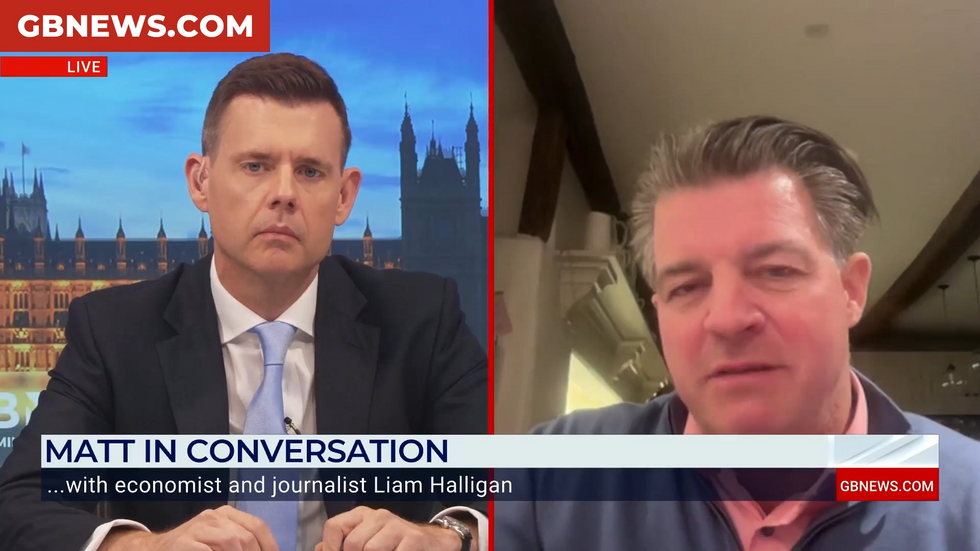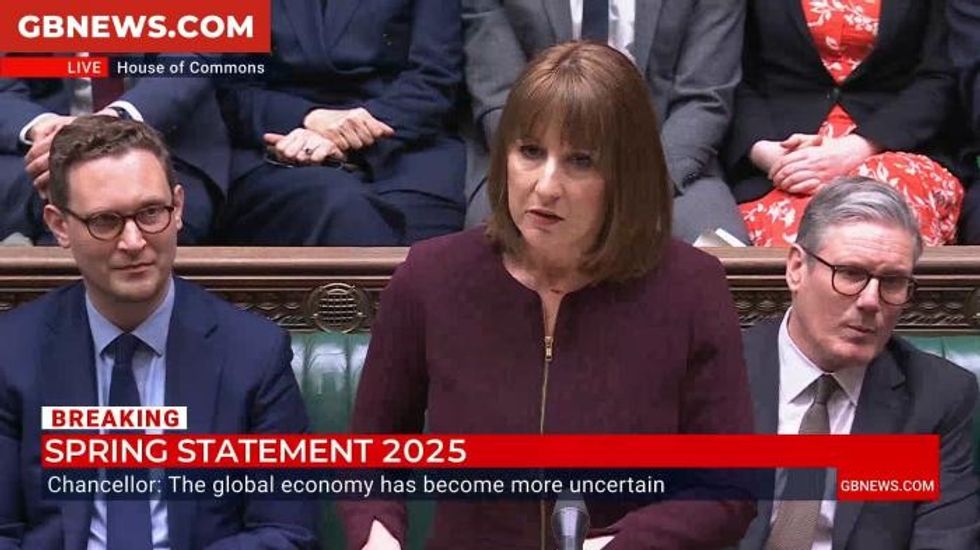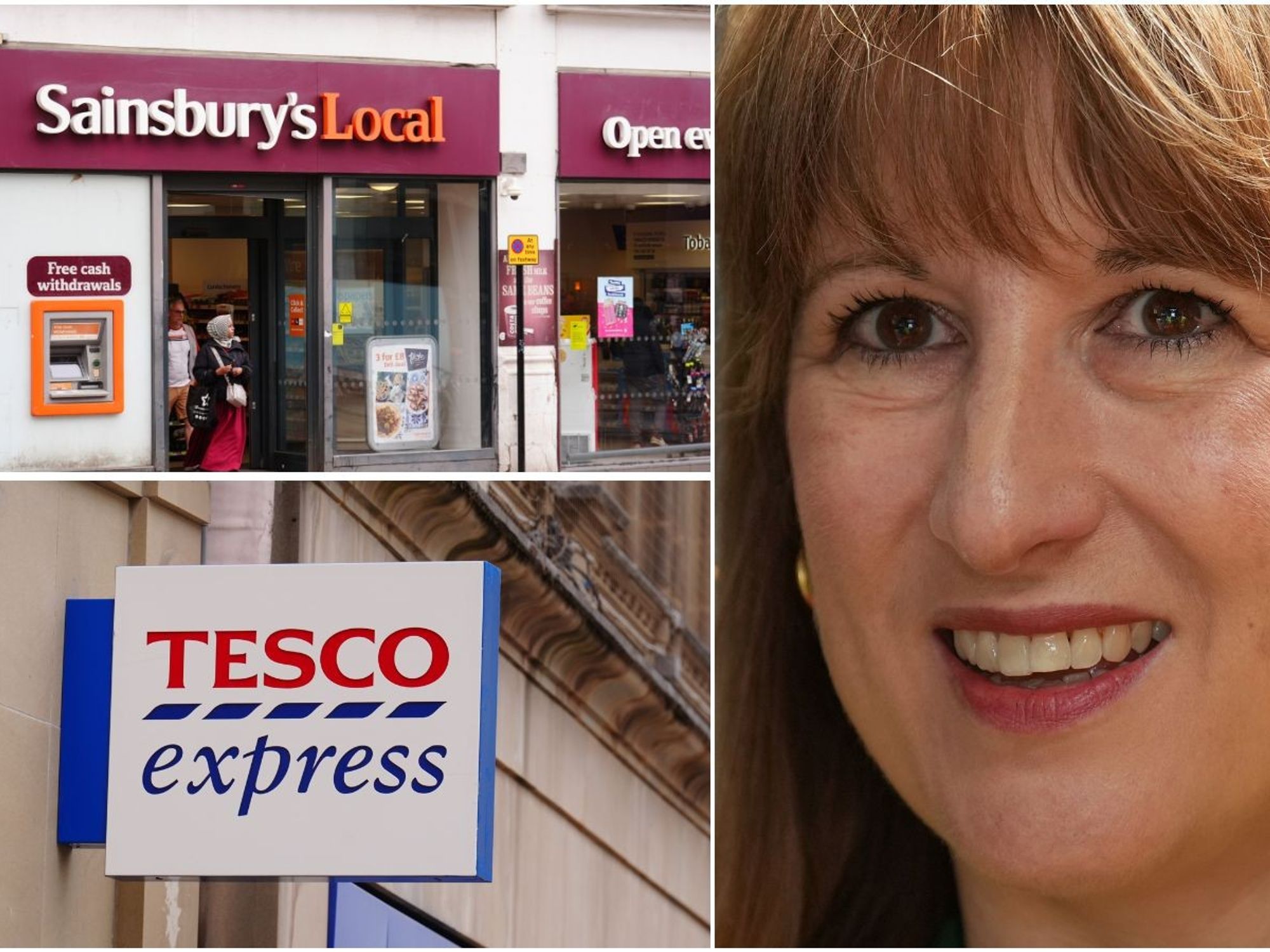Britain on the brink as Liam Halligan says ‘we are a global outlier’ in dismal inflation warning
GB NEWS

The economics expert compared Britain's position to other G7 nations
Don't Miss
Most Read
Economics expert Liam Halligan has delivered a sobering assessment of Britain's financial health, cautioning that the nation has become an international anomaly in troubling ways.
He highlighted that whilst average inflation rates are declining across both the G7 and Eurozone countries, Britain's inflation continues to climb.
"I'm generally an optimistic person and I generally believe in the entrepreneurial vigour of the British people, but the economy is in a bad way," Mr Halligan stated on GB Newss.
He emphasised the UK's concerning position: "Increasingly, the UK is an inflation outlier around the world. We just saw the average inflation across the Eurozone and the G7 is going down, meanwhile UK inflation is going up."

Liam Halligan provided a detailed analysis on why he thinks Britain is in an extremely precarious financial position
|GB NEWS / PA
Britain's inflation rate has reached 4 per cent annually, which represents twice the official target level, according to Mr Halligan's analysis.
He challenged Government statistics on grocery costs, stating: "They say food price inflation is 4.9 per cent, not on my Nelly is food only 4.9 per cent more expensive than it was a year ago, it's a lot more expensive."
LATEST DEVELOPMENTS
- Stealth tax could hit high earners with £7k bill under 'stealth' move from Rachel Reeves
- Car tax changes launching next year could cost drivers £275million as HMRC faces backlash
- Bank branch closures: 'Cashless' Britain loses one in three banking locations in five years
The economics expert pointed to another worrying trend involving Government financing costs.
Despite the Bank of England reducing its policy rates, market-driven borrowing expenses for the British state have surged significantly.

Liam Halligan joined Matt Goodwin on GB News
|GB NEWS
"The actual rate in the marketplace, as driven by investors and institutions, the cost they've been charging to lend in the UK has been going up very strongly," Mr Halligan explained.
Mr Halligan warned that Britain faces serious fiscal risks that warrant urgent national discussion.
"It is by no means an exaggeration, I wouldn't even say it's irresponsible, I think we need to talk about the fiscal dangers the UK faces," he stated.
Government borrowing has reached alarming levels, with monthly figures showing substantial deficits.
 Rachel Reeves has unveiled significant fiscal reforms | GB News
Rachel Reeves has unveiled significant fiscal reforms | GB NewsMr Halligan noted that the state borrowed between £15 billion and £20 billion each month during April, May and June, though July showed different patterns due to technical factors.
He cautioned against attempting to address budget shortfalls through tax increases alone. "If you try and meet a hole in the Budget by just raising tax rates, as Labour like to do, you pull a tax level and you get no tax revenue, because you kill enterprise," Mr Halligan warned.
The Chancellor faces mounting criticism over reported plans for new property taxes that could impact homeowners across Britain.
Treasury officials are allegedly considering capital gains tax on primary residences, initially targeting properties valued above £1.5 million.
Tax specialist Dan Neidle from Tax Policy Associates, typically supportive of Labour policies, has condemned the proposal as potentially raising £31 billion theoretically but "makes no sense" practically.
A second proposed measure involves annual charges of 0.54 per cent on properties worth £500,000 to £1 million, increasing to 0.81 per cent for higher values. This would mean yearly payments of £4,050 for a £750,000 home.
Critics warn these measures could particularly affect elderly homeowners who purchased properties decades ago, whilst inheritance tax revenues are already projected to surpass £9 billion this tax year.










